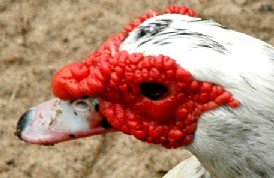Worse than good
I was already tired of hearing about that Danish cartoon story, so I decided to have it settled with the Pakistani of our team.
"But what the hell is all that fuss?", I threw at him around a beer (I was drinking).
He replayed that the Muslims could accept all kind of criticism about all kinds of things, except about the prophet. He explained me that the respect to Muhammad is the untouchable basis of Islamic civilization, and that, although the laws of the Koran can be questionable and criticisable, in Muhammad nobody touches.
And I got to thinking (yes, it's true that I had to ask the beer for some help) that it is actually true that there are some people that question the Koran, and it is because of it that in different countries different rules apply. We can see the example of the Sharia law in Northern Nigeria in contrast with the easy going of the people from Dubai. And it is also true that while I was in Pakistan I saw quite a lot of people questioning certain Islamic laws, but never Muhammad.
But hold on! How can these guys think they're entitled to demand our blind respect by a figure? Is it that now I cannot say whatever I feel about everything? Yes, because in Europe we have the right to say anything that comes to our minds: it's an undeniable right! At least in Europe. Untouchable. Exactly, untouchable like Muhammad.
Wait a minute, but if we have the right to have an untouchable thing, maybe they also have the right to one... Well, then lets make it that each one gets their precious thing, and let's not create any confusions: if they don't want to say bad things about the prophet, that's up to them, let them forbid it, but we will stay with our freedom of speech. We won't accept having them imposing us their jewel, once we're not tying to impose them ours.
Yeah, but... Maybe we are. Maybe we are doing it with all our attempts to make the Arab world a democratic copy of the western civilization.
Dammit, after all they're trying to have an untouchable jewel, but so are we; they want to impose us their jewel, but so do we!
Shit man, please explain me again who are the good guys and who are the bad guys, because the beer will not help me any more!




